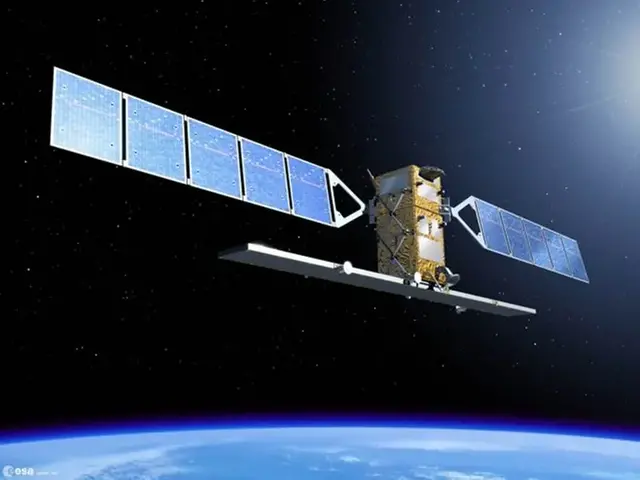Copernicus – a European collaboration for environment and security
Through the EU programme Copernicus, new services and products are developed that are highly beneficial to society. These services cover land and marine monitoring, atmosphere/air quality, emergency preparedness, climate, and security management.
"Copernicus is a crucial programme for establishing an independent European capacity for Earth observation. The extensive investments made will greatly benefit society. Copernicus creates new tools for continuous and long-term monitoring of our environment. The programme is managed by the European Commission and implemented in collaboration with member states and various European organisations," says Cristina Alionte Eklund from SMHI, who has recently taken on the role of Sweden's representative in the Copernicus User Forum.
Complex Array of Measurement Systems
Copernicus comprises a complex array of measurement systems that collect data from multiple sources:
- Space (satellites)
- Air (airborne instruments, balloons with instruments for capturing stratospheric data, etc.)
- Water (buoys, instruments onboard ships, etc.)
- Land (measurement stations, seismographs, etc.)
 Zoom image
Zoom imageSentinel-1 Satellite
Several systems then process this data, providing users with more reliable and up-to-date information through a range of services related to environmental and security issues.
Services and products
Satellite data, combined with observations from land, sea, and air, can be used with advanced analytical and computational models to develop new services and products across six thematic areas. These services cover land and marine monitoring, atmosphere/air quality, disaster management, climate, and security.
In Sweden, SMHI is primarily responsible for two of the Copernicus thematic areas: Atmosphere/Air Quality and Climate. Other Swedish authorities handle the remaining thematic areas:
- Emergency Preparedness Services – MSB (Swedish Civil Contingencies Agency)
- Land Monitoring – Swedish Environmental Protection Agency and the Swedish Mapping, Cadastral, and Land Registration Authority
- Marine Monitoring – Swedish Agency for Marine and Water Management
- Security Management (currently no responsible authority)
Open data
"Copernicus programme's open data, especially satellite data, is a crucial prerequisite for the development of new innovative products and services. On a European level, several freely accessible core products have been developed. These can be further developed by commercial actors or scaled down to the national/regional level," says Cristina Alionte Eklund.
An example of European collaboration in service development is EFAS (European Flood Awareness System), where SMHI is the coordinator for distributing hydrological warnings in Europe.
Another example is the development of a nationally web-based air quality service.
SMHI is also involved in several other services related to air quality, marine environment, and climate.
Copernicus is also Europe's contribution to the Group on Earth Observations (GEO) – the global GEO collaboration aimed at building a global Earth observation system.
Facts about Copernicus
Copernicus is a European Earth observation system consisting of a complex array of systems that collect data from various sources, such as Earth observation satellites and in situ sensors (ground stations, airborne and marine sensors). Copernicus processes this data and provides reliable and up-to-date information through various services, primarily in the fields of environment and security. The services offered through Copernicus can also be customised for specific public or commercial needs and are freely available. Copernicus is coordinated and managed by the European Commission.
As part of the programme, six satellites, known as Sentinel satellites, are to be launched.
Copernicus Website External link.
External link.
Copernicus user forum
To ensure that the data and services based on this data are truly relevant to end users, the European Commission has established the Copernicus User Forum, which advises on priorities within Copernicus from a user perspective. SMHI has been tasked by the Ministry of Education to represent Sweden in the Copernicus User Forum. For this purpose, a special national collaboration between authorities, called the National Copernicus Coordination, has also been established.

